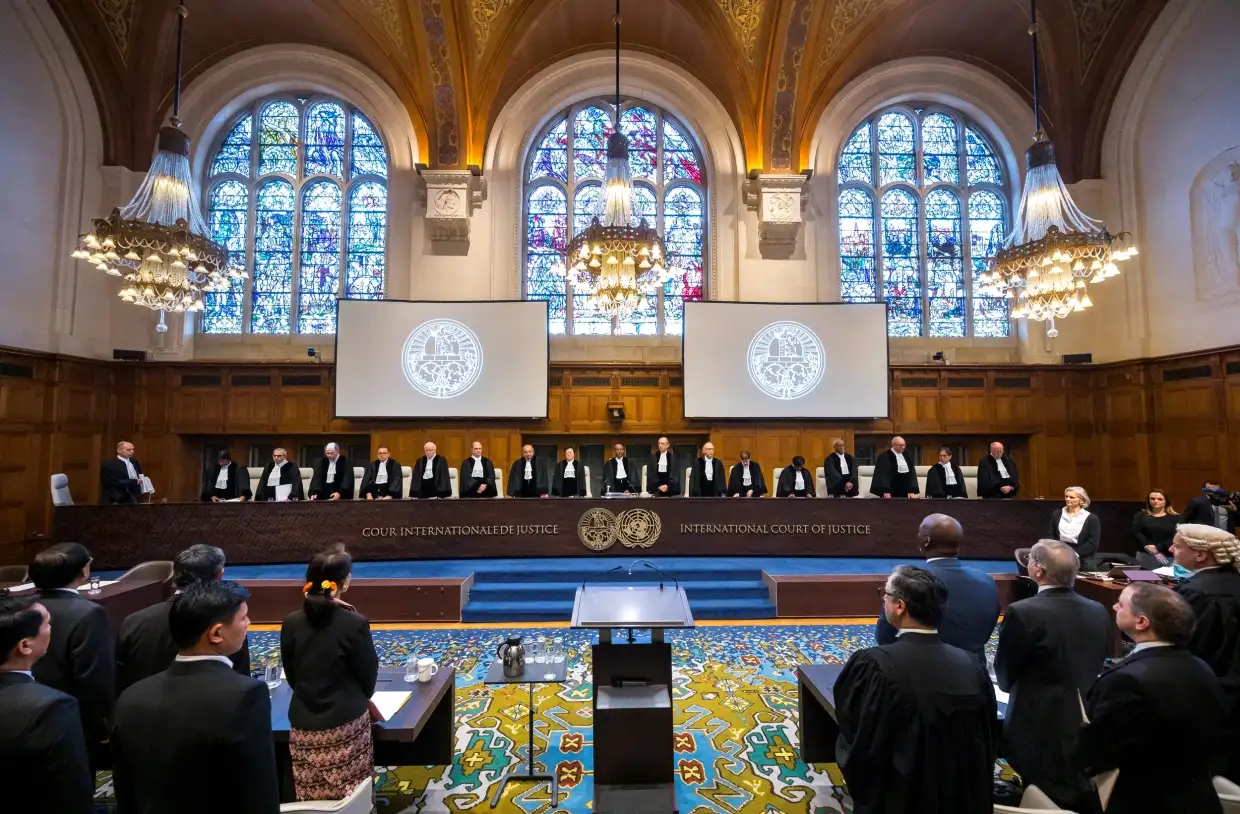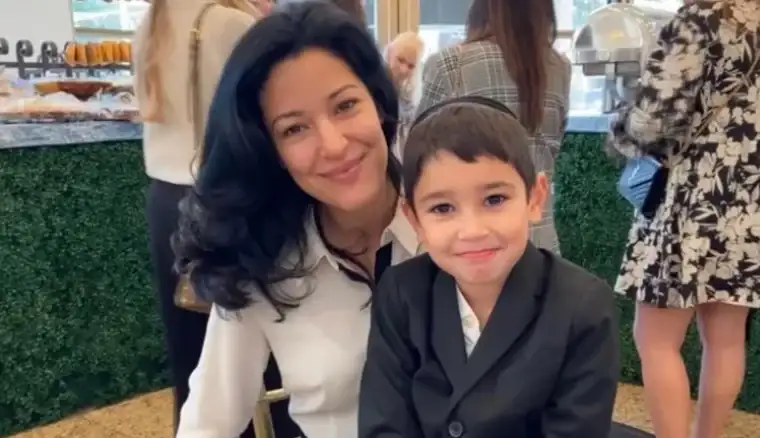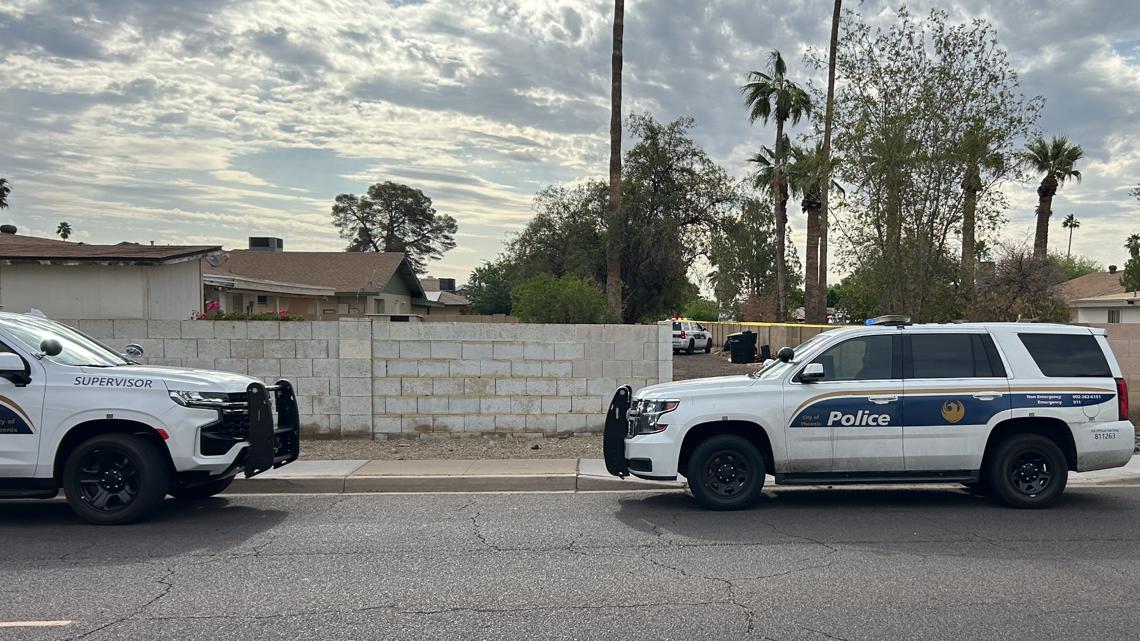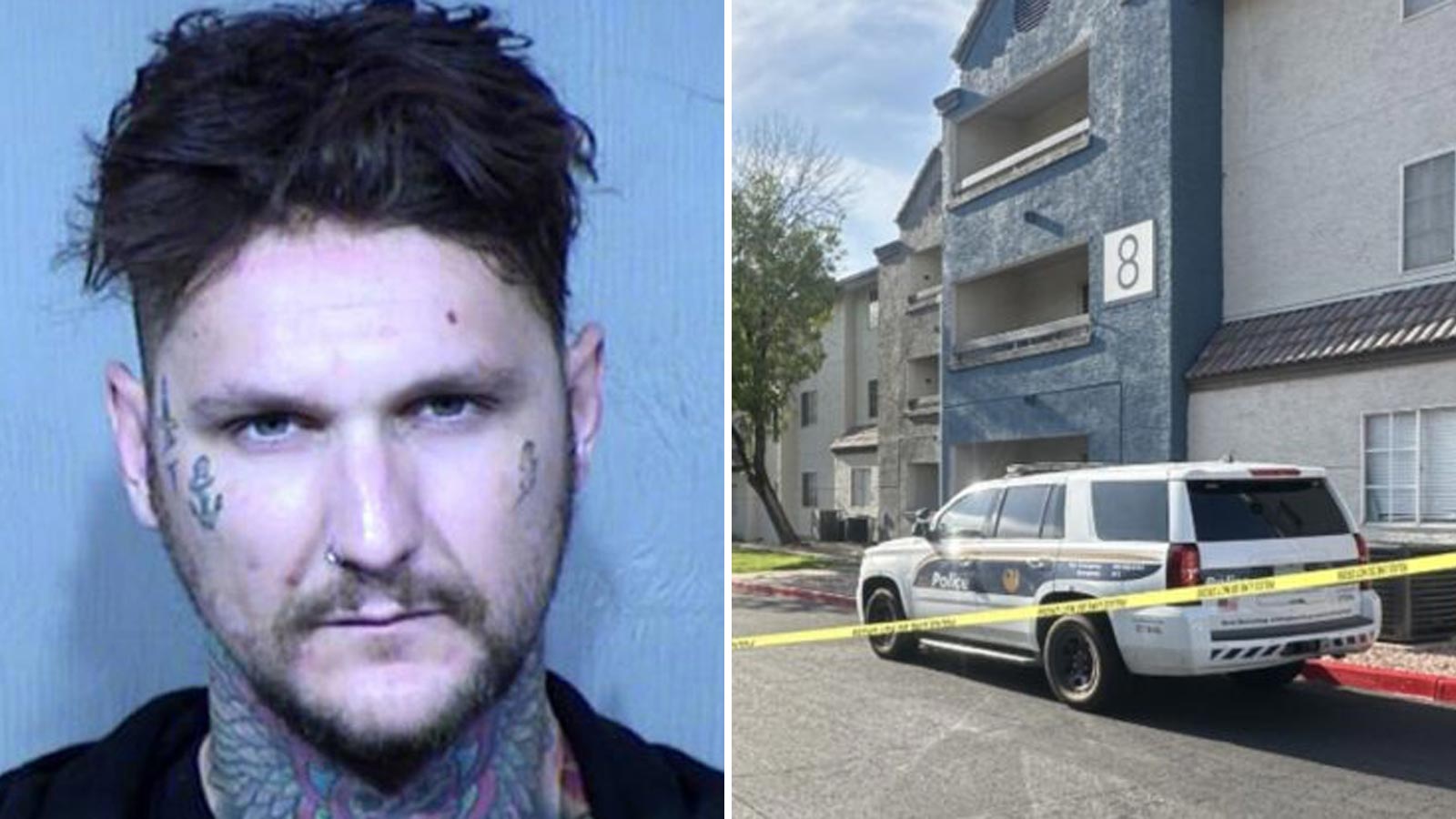In a closely watched case that went to the Supreme Court and galvanized calls for legal reforms to better protect domestic violence victims, a federal judge is set to rule on whether a 6-year-old boy should be sent back to Italy to live with his father, who admitted in court to abusing the boy’s now deceased mother.

The decision on whether the late Narkis Golan’s son can continue to live with his mother’s family in Brooklyn, New York, or must return to his birthplace of Milan to live with his father, Isacco Jacky Saada, will come after a contentious court battle in which Golan’s family claims the boy returned from recent visits with his father distressed and bruised, among other claims included in recent court filings. Saada denies causing the boy bruising or distress.
The case reached the Supreme Court in March 2022, prior to Golan’s death in October, and the justices unanimously sided with her, making it easier for judges to deny a request for a child’s return to a country where they face a “grave risk of harm.” The justices then remanded the case to a lower court in the Eastern District of New York, where it now awaits a ruling by Judge Ann Donnelly. Donnelly has ordered the boy’s deportation to Italy three times since the case was filed in 2018, all of which Golan’s lawyers have successfully contested.
According to the public docket, Donnelly has requested a childhood autism specialist to analyze the boy’s present state before issuing her verdict. When she will govern is unknown.
Domestic violence experts and advocates who have followed the case say it is a window into a reality experienced by mothers all over the world who flee abusive partners with their children for another country and then face charges of kidnapping under the Hague Convention, an international treaty adopted by more than 100 countries, including the United States, since its proposal in 1980. In the most recent year for which data is available, mothers comprised 73% of parents who transferred their children to another nation in Hague cases filed in 2015. While no solid numbers exist, experts believe that the majority of such cases involve women fleeing domestic abuse.
“The whole thing, as it is written, really does not understand the idea of mothers fleeing to protect children from physical, sexual, and psychological abuse in the country of residence,” Lynn Hecht Schafran, senior vice president of the women’s legal defense organization Legal Momentum, said of the treaty’s child abduction clauses.
According to court documents and the Supreme Court’s ruling in Golan v. Saada, Golan fled Italy with her son in 2018 for the United States, where she was born, because Saada physically and verbally assaulted her and threatened to murder her, with much of the abuse taking place in front of her kid. Saada then requested a court to return the couple’s kid to Italy under the Hague Convention on the Rights of the Child, kicking off a years-long legal fight. (In court, Golan also claimed that Saada sexually attacked her, which he denied.)
Golan was discovered dead in her Brooklyn residence on October 18, 2017, in what the New York City Medical Examiner’s Office determined was a natural death caused by a brain bleed. Although Golan’s family voiced concerns about the circumstances of her death, the NYPD and the Brooklyn District Attorney’s Office investigated and found no evidence of foul play or criminality, according to police and DA spokespeople.
Lawyers for Golan’s family, the boy, and Saada did not respond to requests for comment by email or phone.
Allegations Of Bruising, Cursing, And Emotional Distress
Narkis’ sister, Morin Golan, now has primary custody of the boy. According to recent court documents by Golan’s family lawyers, the youngster returned to his aunt with bruises following two recent encounters with his father.
The youngster arrived home with “two black-and-blue eyes,” which the supervisor stated he got while leaping on the bed and accidentally striking his knee into his face, according to the petition. The youngster then returned home with bruises on his leg and arm, which were “in the shape of three fingers,” according to the petition, after his first unsupervised visit with his father in April.
Saada resides in Italy but travels to New York on weekends to spend unsupervised time with his son.
Morin Golan stated that when she asked her nephew about the source of the injuries, he stated that “he did not remember or does not know how the bruises got there,” according to the document, adding that because of his autism and trauma difficulties, “he is often not communicative and cannot advocate on his own behalf.”
“It is unclear to Ms. Golan whether the bruises are the result of an innocuous incident, a failure to properly supervise [the boy], or something more concerning,” according to the petition.
READ ALSO: Trump Faces Seven Counts Of Corruption, Conspiracy, And False Statements
In a response filing, Saada’s lawyers state that the father is “unaware of any recent bruising and denies having caused any bruising to [the boy].” The lawyers also state that the first bruise was caused by the boy jumping on the bed.
According to the filing from Morin Golan’s lawyers, the kid claims that “he is not permitted to speak about his mother” when visiting his father and that “he is afraid to bring a stuffed animal that plays a recording of his mother’s voice” to their visits because he is terrified of getting in trouble. They also claim Saada falsely told his son that his mother hit him and dropped him on the floor as a baby; made disparaging remarks about Morin Golan and her family, including calling them a “garbage family”; and told the boy that he “will soon go back to Italy with him and will never see Ms. Golan or his maternal family again.”
According to the document, Saada’s lawyers disagree that the youngster is forbidden to speak about his mother, adding that “they frequently will have conversations about how [the boy] misses her,” and deny that he is forbidden to bring the stuffed animal. According to them, the youngster recently told his father that his mother was abusive to him, and Saada was “surprised” by the claims. According to the lawyers, Saada denied making derogatory statements about the Golan family and stated that “he has told [his son] that he can keep in touch with whomever he wants if he goes back to Italy.”
Morin Golan’s attorneys also claim that Saada uses “inappropriate and vulgar terms” during video chats, which he repeats after never using them before. They also claim that the youngster “becomes defiant, aggressive, angry, and disrespectful” after visits with Saada, which they claim “reflects a pattern of deterioration” after extended meetings with his father. The lawyers also claim that the father told the youngster’s trauma therapist that the boy “does not have any mental health concerns and disputed any need for therapy,” according to a court filing by Golan’s lawyers.
In response, Saada’s lawyers acknowledge that Saada “may have, at times, used inappropriate language” around his son, but that he has instructed the boy “to refrain from using foul language, which, as a young child, [the boy] finds amusing.” The lawyers also stated that English is not Saada’s first language and that he “understood (perhaps mistakenly) from the trauma therapist that [his son] no longer needed her services,” adding.
READ ALSO: A Man At A Nonprofit Was Greeted With A Macabre Scene Of Burning Sage And Severed Heads
According to experts, the fact that Judge Donnelly — who previously led the Family Violence and Child Abuse Bureau at the Manhattan District Attorney’s Office — could still order the boy’s return to Italy reflects a larger issue in which many judges fail to consider history or threat of domestic violence when ruling on such cases.
Experts say the fact that Judge Donnelly — who previously led the Family Violence and Child Abuse Bureau at the Manhattan District Attorney’s Office — could still order the boy sent back to Italy reflects a broader problem of how many judges fail to take a history or threat of domestic violence into account when ruling on such cases.
Italy’s Possible Future Is Uncertain
According to a letter submitted last month by Italian judge Daniela Bacchetta, if the youngster is returned to Italy, his eventual destination would be decided by the Chief Public Prosecutor at the Milan Juvenile Court.
Laura Serra, a Rome-based family law specialist, wrote in an opinion filed on behalf of Morin Golan that if Donnelly sends the boy to Italy, there is a “very high likelihood” he will be placed in a group home, where he could stay for years while Italian authorities investigate the various family members who could potentially take custody of him, including his father. Serra noted that the child’s placement in such a facility would be “especially risky” given his autism, trauma history, and inability to communicate in Italian. According to Serra, it would also take at least six months for him to receive an Italian autism certification, which he would require in order to access educational support.
READ ALSO: A Pennsylvania Man Will Spend The Rest Of His Life In Prison For Murdering His Former Co-worker
In an opinion filed on Saada’s behalf, Milan-based lawyers Zanetti Vitali and Romualdo Richichi, who specialize in family law, said Serra’s belief that the youngster would end up in a group home is “completely groundless” because foster care is “the last resource” in Italy. They also claim that the father is not a danger to the youngster “because there was never any allegation of direct violence against him.”
Donnelly has previously made a similar argument, writing: “As I have explained before at length, the grave risk of harm to [the boy] comes from a single source — the violence between his parents,” according to the memorandum decision she wrote last August, the third time she ruled to send him back to Italy.
However, the Hague specialists Schafran and Weiner argue that those views represent a misunderstanding of the linkages between intimate partner violence and child abuse. While the evidence is scarce, experts indicate that many children who grow up in families where there is intimate partner violence also experience maltreatment. While Donnelly said that “there is no significant evidence that Mr. Saada was intentionally violent” to his kid, the Supreme Court ruling states that witnessing domestic violence negatively influences a child’s development and changes the structure of their brain.
“It’s shocking that a judge as knowledgeable as this one, based on her own courtroom experience, would claim that once these parents live apart, there will be no more violence,” Schafran said.
Increasing Calls For Reform
Golan was part of a rising movement of campaigners and academics asking for changes in how the Hague Convention’s child abduction clauses are implemented to better protect women and children fleeing domestic violence.
Reem Alsalem, the United Nations Special Rapporteur on violence against women and girls, recommended in an April report that the treaty “be revised to better protect abused women and their children by allowing a stronger defense against return if there is family and domestic violence,” and that judges ruling on such cases “be required to consider family and domestic violence” in their decisions.
According to the State Department, the convention is implemented in the United States through the International Child Abduction Remedies Act. Former Rep. Ileana Ros-Lehtinen, R-Fla., and others introduced legislation in 2014 to require judges to recognize the domestic abuse risk a child may face if ordered to return to their home country, as well as to require judges to complete training on the effects of domestic violence on families and children. However, according to Weiner, who provided NBC News with the bill’s draft, the idea was never submitted to Congress due to a lack of enthusiasm among politicians. Ros-Lehtinen did not respond.
Since then, there have been some initiatives to effect change at the state level. For example, Florida Gov. Ron DeSantis passed legislation last month requiring family courts to consider threats against ex-partners or spouses when making decisions on child visitation and custody, according to NBC Miami. Greyson Kessler, a 4-year-old Florida toddler, was killed by his father in a murder-suicide in Fort Lauderdale in 2021, according to the local broadcaster.
READ ALSO: Man Accused Of Murdering Madeline Kingsbury Admitted He Was Obsessed With Gabby Petito




